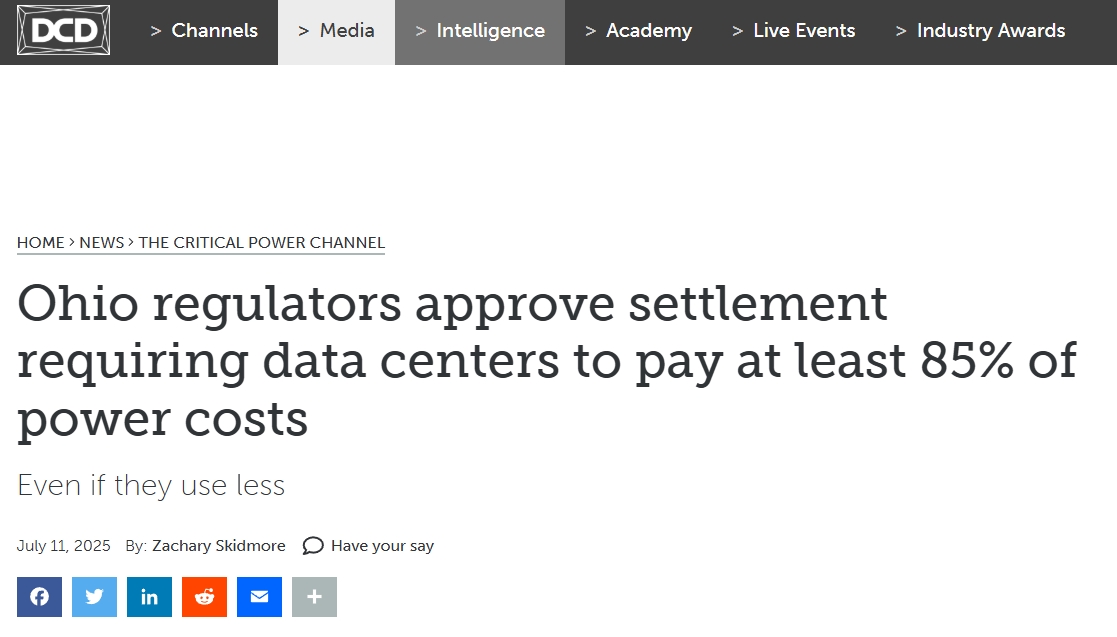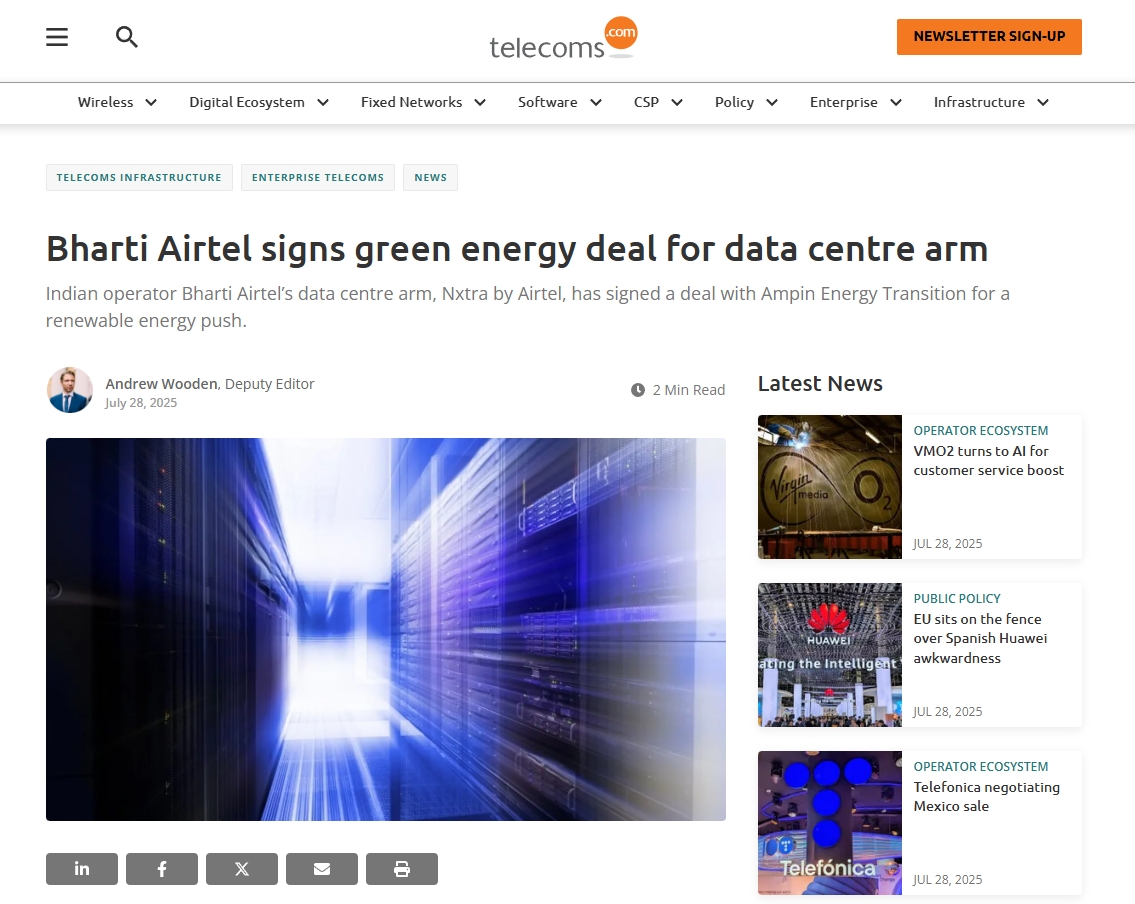Even if they use less
Ohio regulators have voted to approve a settlement that would require data centers to pay for a portion of their energy requests, even if the electricity is not ultimately needed.
The Public Utilities Commission of Ohio (PUCO) voted through the settlement proposed by American Electric Power (AEP) Ohio on Wednesday, July 9.
The settlement agreement was initially proposed last October. It requires new data center customers to pay for a minimum of 85 percent of the energy they say they need each month, even if they use less, to cover the cost of infrastructure required to bring electricity to those facilities.
For example, if a data center required 1GW of power, it would be charged for at least 850MW, even if it doesn’t end up using it.
Commenting on the news, Bill Michael, senior counsel for the Ohio Consumers' Counsel, said: ”That obviously increases the skin in the game that the data centers would have. And it would make them more likely to perform."
The new rules will also require data centers to provide proof they are financially viable and able to meet those requirements, and pay an exit fee if their project is canceled or unable to meet the obligations outlined in the electric service agreement contract.
Reflecting on the approval, PUCO chairperson Jennifer French said that the deal would protect ratepayers while ensuring that Ohio provides a "dependable and reasonable environment" for data center companies.
AEP Ohio president and CEO, Marc Reitter, also responded positively to the news, stating: “We are glad the PUCO agrees that it is critical to align data centers’ demand for energy with the infrastructure costs needed to support their growth in Ohio.
“This infrastructure will support Ohio’s growing tech sector and help secure America’s data storage and processing facilities here in the US.”
The requirements will now be in place for 12 years, and according to AEP Ohio, they will permit the utility to end the moratorium on new central Ohio data center agreements, which had been instituted as a means to protect ratepayers.
During the proceedings, representatives from hyperscale firms such as Google, AWS, and Meta pushed for less restrictive rules. PUCO did consider a potential amendment that would have seen data centers on the hook for only 70 percent of costs; however, following deliberations, the regulator sided with AEP Ohio.
The settlement continues a trend of states seeking to protect residential utility customers and small businesses from bearing the financial burden of new transmission upgrades and power generation needed to accommodate new data centers.
In June, Oregon passed a bill that established a new customer class for data centers, requiring the Public Utility Commission to allocate costs to serve the facilities on the developers.








